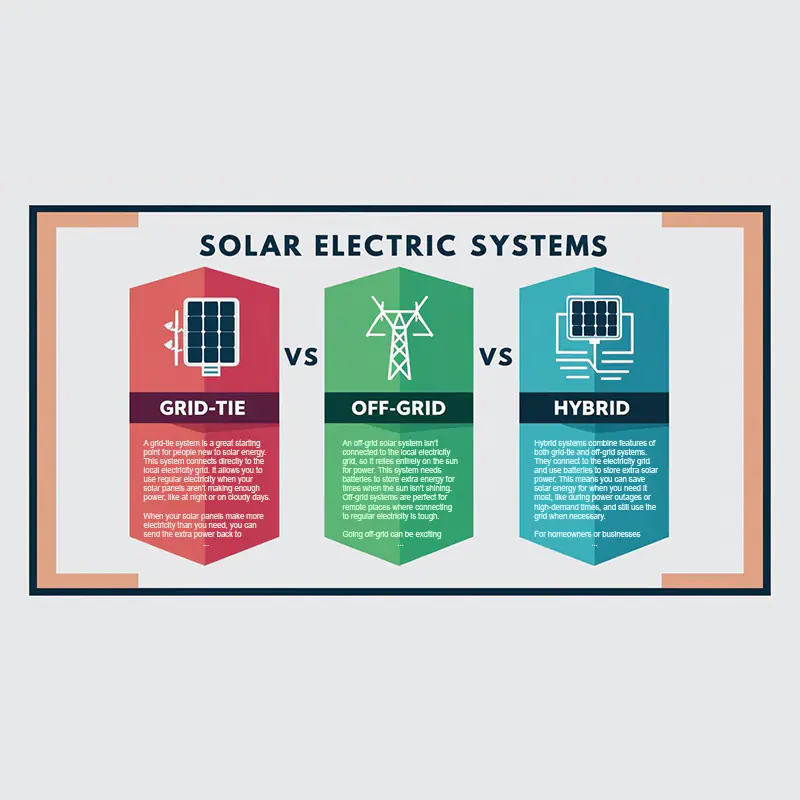
Solar power is becoming more popular as the world looks for cleaner and more affordable energy sources. For people who own homes or businesses and are thinking about using solar power, it's important to know the different types of solar systems available, like grid-tie, off-grid, and hybrid systems. This guide will help explain these options so you can choose the one that best fits your needs.
A grid-tie system is a great starting point for people new to solar energy. This system connects directly to the local electricity grid. It allows you to use regular electricity when your solar panels aren’t making enough power, like at night or on cloudy days. When your solar panels make more electricity than you need, you can send the extra power back to the grid. In many places, this can help you save money or even earn some money back—a system called net metering.
If you already have easy access to regular electricity, a grid-tie system is an affordable and low-maintenance way to start using solar power. It makes switching to renewable energy smooth and lets you still use regular electricity when necessary.
An off-grid solar system isn’t connected to the local electricity grid, so it relies entirely on the sun for power. This system needs batteries to store extra energy for times when the sun isn’t shining. Off-grid systems are perfect for remote places where connecting to regular electricity is tough.
Going off-grid can be exciting because it means you’re completely independent in terms of energy, but it requires a lot of planning and a big initial investment. You’ll need more solar panels and bigger batteries, making it ideal for those who really want energy independence or live far from city power lines.
Hybrid systems combine features of both grid-tie and off-grid systems. They connect to the electricity grid and use batteries to store extra solar power. This means you can save solar energy for when you need it most, like during power outages or high-demand times, and still use the grid when necessary.
For homeowners or businesses wanting flexibility and savings, hybrid systems offer a good balance. They cost more upfront because of the batteries, but the savings and reliable energy make it worthwhile in the long run.
Picking the right solar system depends on where you live, how much energy you need, and your budget. Grid-tie systems are the most accessible and cost-effective option for those with reliable grid access. Off-grid systems offer complete freedom for those in isolated areas or who are dedicated to living off the grid. Hybrid systems provide a mix of both, perfect for those seeking reliability and efficiency.
By learning about each system’s features and benefits, homeowners and business owners can make smart choices that match their energy needs. As solar technology keeps getting better, adopting solar power is a big step toward a cleaner and more energy-efficient future.